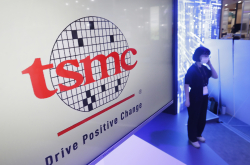The Union Minister of Consumer Affairs, Pralhad Joshi, has directed the Central Consumer Protection Authority (CCPA) to investigate allegations of differential pricing by cab aggregators. The investigation stems from claims that iPhone users are charged higher fares compared to Android users. This directive follows a post by senior journalist Sucheta Dalal on X (formerly Twitter), amplifying these concerns and highlighting instances of significant fare variations for identical rides when checked multiple times.
This development has reignited discussions on personalised pricing and its broader implications for consumer rights in the digital economy.
‘Personalised’ or ‘discriminatory’ pricing?
At the heart of these allegations is the practice of personalised pricing, where fares are customised based on user-specific data such as the type of mobile handset, search patterns, and app usage history. While not inherently illegal, this approach raises critical questions about transparency and fairness in consumer transactions. Minister Joshi’s directive underscores growing concerns over consumers’ right to know and suggests that similar issues may be prevalent in related sectors such as food delivery and online ticketing platforms.
CCI’s market study
In 2022, the Competition Commission of India (CCI) conducted an extensive market study on the cab aggregator industry. The study confirmed the existence of personalised pricing, identifying factors such as mobile handset type, ride preferences, and time of day as influential in fare determination. While recognising the convenience these platforms offer, the study emphasised the need for greater transparency to address consumer mistrust—particularly regarding surge pricing, which riders often perceive as arbitrary.
- Also read: Markets end higher as pharma stocks lead gains; Sensex at 78,699
The CCI’s findings called for reducing information asymmetry between consumers and platforms. It recommended that cab aggregators clearly disclose how fares and surcharges are calculated and the division of earnings between drivers and companies. However, the study stopped short of finding personalised pricing inherently harmful to consumer welfare or anti-competitive, advocating instead for self-regulation within the industry.
Limits of self-regulation
Despite the CCI’s recommendations, self-regulation has fallen short in curbing allegations of discriminatory pricing. Persistent claims, such as higher fares for iPhone users, reflect a broader failure by cab aggregators to implement transparent and fair pricing mechanisms. This inaction not only undermines consumer trust but also raises potential competition law concerns, particularly for platforms wielding significant market power.
Industry watchers argue that the time for gentle nudges has passed. If self-regulation proves ineffective, regulatory bodies like the CCI may need to escalate enforcement measures, investigating and penalising exploitative practices to ensure a level playing field and protect consumers in the digital economy.
Implications beyond cab aggregators
The scrutiny on cab aggregators is part of a larger conversation about personalised pricing across digital platforms. Food delivery apps, online ticketing services, and e-commerce platforms are also facing criticism for similar practices. Minister Joshi’s directive could mark the beginning of a broader regulatory push to establish fairness and transparency in digital markets.
Navigating the innovation-protection dilemma
As India’s digital economy expands, policymakers must strike a delicate balance between fostering innovation and safeguarding consumer rights. Personalised pricing, powered by data analytics and machine learning, offers the potential for market efficiency and enhanced user experiences. However, opaque pricing practices risk alienating consumers and eroding trust.
The path forward
The CCPA’s investigation will likely centre on whether cab aggregators’ pricing strategies constitute unfair trade practices under Indian consumer protection laws. Depending on the findings, this inquiry could lead to the development of new guidelines or regulatory interventions aimed at ensuring that digital platforms align their practices with consumer interests. In tandem, CCI needs to take cognisance of such differential pricing strategies adopted by gatekeeper platforms and initiate enforcement actions for larger market correction.
This controversy highlights the urgent need for collaboration between regulators, businesses, and consumer advocates to address the challenges posed by personalised pricing. Whether through self-regulation or stricter oversight, cab aggregators and other digital platforms must demonstrate their commitment to transparency and fairness in the evolving digital landscape.
- Also read: Rupee hits fresh record low, falls 23 paise to 85.50 against US dollar








Leave a Comment